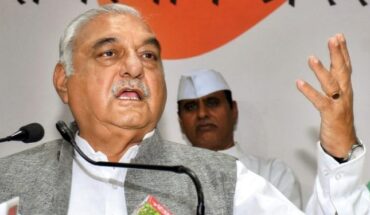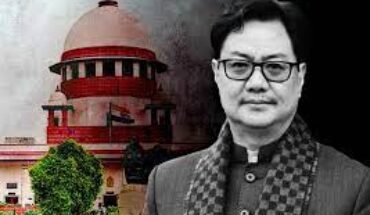Binoy Viswam explores how Pegasus verdict provides an answer to question of privacy
In a democracy, how far should the Government be allowed to peep into a citizen’s privacy? The Government of India has always maintained that there is no limit to this, as long as the act is carried out in the interest of national security. The current Government has handled all Pegasus-related issues on the basis of this premise. The Supreme Court’s recent decision provides a definitive answer to this question.
The top court said national security was not a pass for the Government to spy on its own citizens. The expert committee instituted by it is mandated by stringent terms of reference. It is worth noting that the court refused to accept the Government’s suggestion for a Government-sponsored commission to investigate the matter. As a result, “we the people” would like to call it a landmark decision. It elevated the country’s honour and democratic values to new heights. The ruling was made in accordance with the fundamental right to privacy. Article 21 of the Constitution states, “No person shall be deprived of his life or personal liberty except according to procedure established by law.”
The Supreme Court had on an earlier occasion interpreted the Constitution and its emphasis on the primacy of privacy. In the Aadhaar case, which the author was also a party to, the court determined privacy to be a fundamental right. The current Government has always had a different perspective on this crucial issue. There were allegations that the Government was tapping citizens’ phones utilising numerous agencies at their disposal and infringing on the citizens’ right to privacy.
Given its nature and proficiency, the advent of the Pegasus malware brought the issue to a more dangerous level. The disclosure by the Pegasus Project, a media consortium, was so alarming that it shook the entire world. According to their analysis, Pegasus was utilised in India as well as over 45 other nations. The unfortunate list included journalists, politicians, judges and activists. Even Ministers in the Union Cabinet were not spared. It was debated vehemently in our country. Initially, the Government bolstered its argument by issuing a blanket denial of the report. When it failed, their strategists worked around the clock to save themselves from a catch-22 predicament.
Parliament’s monsoon session arrived in the midst of this controversy. The Government’s main objective was to prevent any discussion on Pegasus. The Opposition, on the other hand, was eager to hold the Government accountable. But the MPs’ customary avenues for airing their concerns were systematically diluted. Naturally, Opposition members attempted to ask as many questions as possible on Pegasus.
My experience in this regard is worth mentioning here. Strictly following the procedures, I gave a notice for the following questions: “The number of memorandum of understandings [MoUs] the Government has entered into with foreign companies and the details sector-wise; whether any of these MoUs with foreign companies has been in order to curb terror activities through cybersecurity and the details of the same; and whether the Government has entered into an MoU with NSO Group in order to curb terror activities through cybersecurity across the nation and, if so, provide details thereof.”
With appropriate caution, the Rajya Sabha Secretariat temporarily approved the questions and set a date for them to be included during the Question Hour. As per routine, the questions were directed to the relevant Ministry for answers. But that was the end of it. These questions were never brought before Parliament. Moreover, the rights of the MPs were suppressed by the authoritarian arrogance of the Government. The monsoon session was marred with unpleasant incidents, owing to the Government’s unwillingness to discuss the matters related to the spyware. An MP may be compelled to question the relevance of Parliament when it is not permitted to examine vital topics, including the Pegasus issue, the farmers’ struggle and price rise. When Opposition members tried to talk about Pegasus, their microphones were turned off.
We have heard Prime Minister Narendra Modi reiterating that Parliament is an avenue to debate national concerns. On the eve of the monsoon session, he also spoke about the Government’s readiness to offer necessary room for Parliament’s democratic functioning. These assurances are like lines drawn on water. Under the cover of national security, they built a fortress to prevent any discussion on Pegasus. Even the spyware’s country of origin, Israel, has launched an investigation into it, as have countries such as France and Hungary. However, the Government of India, which talks a lot about transparency, was adamant to ensure that no mention of Pegasus was made in the House. They used national security as a trump card. An “atmanirbhar [self-reliant]” Government is preaching the ideology of hyper-nationalism and then handing over the key of national security to a spyware controlled by a foreign country.
As far as national security and a citizen’s fundamental rights are concerned, the Supreme Court’s terms of reference were clear. The state cannot be an adversary in the defence of basic rights. The Government defends its operations by using the term “lawful interception” to justify its acts under the guise of national security. If that argument is permitted to do its rounds indefinitely, the country will devolve into a police state, with civil liberties becoming a thing of the past. The significance of the top court’s historic decision is that it underlines that restrictions on the right to privacy must pass constitutional scrutiny. Citizens will definitely look up to this verdict as a protective measure in defence of their civil liberties and fundamental rights. But they are anxious to know how the Government will cooperate with the fact-finding voyage of the expert committee appointed by the court.
Binoy Viswam is an MP and Secretary of the CPI National Council




